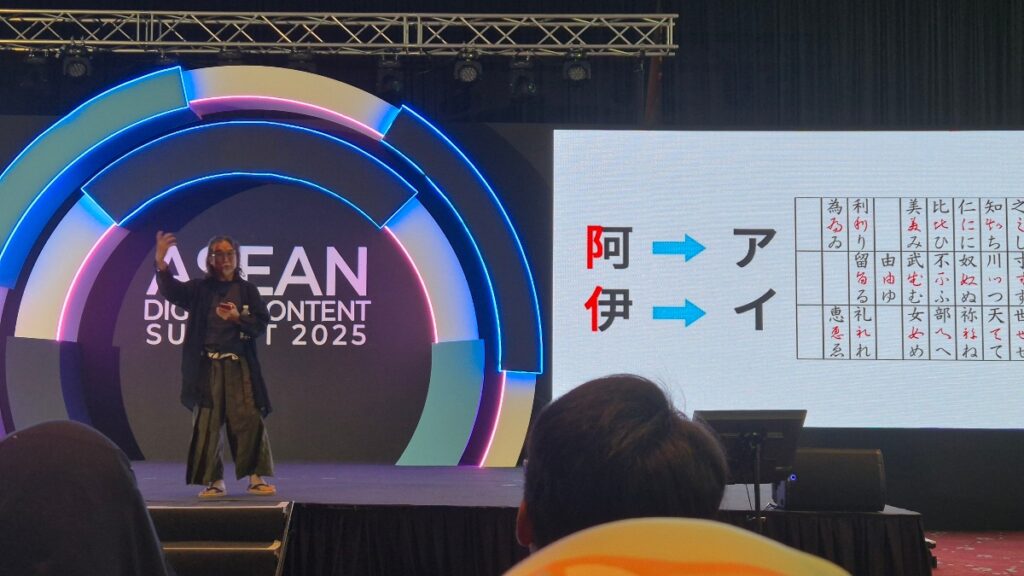
Why are the Japanese such accomplished storytellers, and why do their tales travel across the globe?
Although no formal research has been published on the subject, Shuzo Shiota, president and CEO of Polygon Pictures, believes four key factors explain this.
He shared his insights during his keynote address at the Asean Digital Content Summit (ADCS), held from 2 to 4 September 2025 in Johor Bahru, Malaysia.
Shiota pointed first to Japan’s environment. The country’s varied landscape—mountains, rivers, seas and volcanoes—inspires wonder, yet frequent earthquakes remind people of nature’s destructive force. “We respect nature because it is both beautiful and dangerous,” he said. Shintoism, Japan’s indigenous belief system, reflects this duality. It teaches that spirits inhabit elements of nature. “That personification allows us to give character to everything,” Shiota explained.
The second factor Shiota highlighted was creative freedom. Shintoism has no rigid scriptures or dogma. And because it does not define absolute notions of good and bad, Japanese creators face fewer restrictions. “To the Japanese, good or bad is contextual. So while graphic violence, gore, sexual themes, nudity, profanity and exploring dark psychological angles may be taboo elsewhere, they are not necessarily in Japan’s manga, anime or films. That gives us a huge space to express ourselves,” he said.
As the third factor, Shiota stressed the importance of social awareness. Dense populations force people to live closely together. “We learn early not to be a nuisance,” he said. “Good and bad are subjective, but empathy is possible. Not causing inconvenience to others is possible. That awareness of relationships and surroundings fuels our storytelling.”
Finally, Shiota pointed to Japan’s safety and infrastructure. Children travel alone thanks to secure neighbourhoods and excellent public transport. “On the way to and from school, they have plenty of free time,” he noted. “And what do they do? They consume all kinds of content, often things adults might forbid. That widens their imagination. Expanded minds are open to things, and can also come up with new ideas.”
Shiota concluded with a broader reflection, “Stories flourish in cultures with deep histories, in environments rich with nature, in societies that respect and remain sensitive to it, in communities that tolerate diverse thinking and taste, and in places where people feel physically and mentally safe.”
Shiota was one of the many speakers at ADCS, organised by Malaysia Digital Economy Corporation (MDEC). The summit drew more than 50 global and regional thought leaders, over 100 exhibitors and buyers, and national pavilions from more than 10 countries. It fostered innovation and cross-border collaboration in animation, games and creative technology, bringing together policymakers, industry leaders, studios, start-ups, investors and creators from across ASEAN (Association of Southeast Asian Nations) and beyond.
